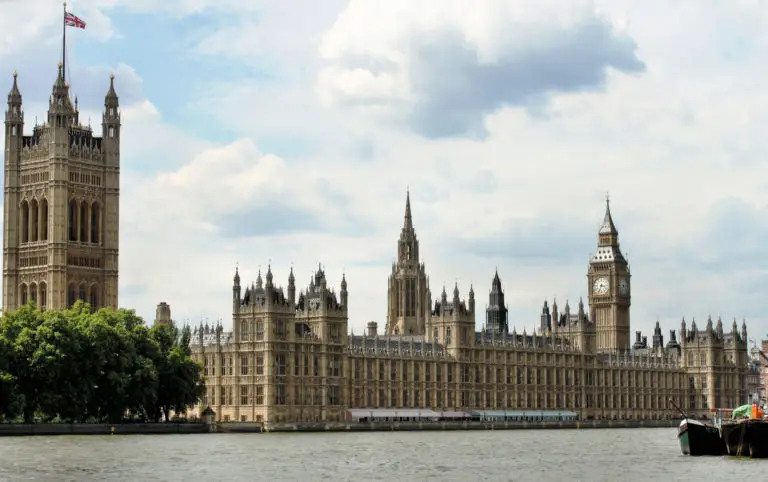Parliament has an essential role in the functioning of government, politics and fair representation. However, COVID-19 poses a huge and unprecedented challenge: how can Parliamentarians safeguard democracy and carry out their constitutional duties of scrutinising government and passing legislation whilst the Palace of Westminster sits empty?
Democratic oversight remains vital
At a time when government has been granted emergency powers that have not been seen since the last world war, and ministers are taking rapid decisions that could shape our economy and society for a generation, parliamentary oversight remains vital. Party politics rightly takes a back seat in a time of national crisis, but Parliament’s collective responsibility to hold the government to account remains. Hence, the many calls for a ‘virtual’ legislature to ensure adequate scrutiny of the government’s decisions.
An unprecedented step
This week, the House of Commons Commission said ministers will be quizzed via Zoom for the first time in the House’s 700-year history. This “unprecedented step” which MPs are set to approve this week, will “keep democracy going” during the coronavirus crisis. Approval has been given to allow up to 120 MPs at any one time to take part in proceedings virtually, while around 50 could remain in the chamber under strict social distancing rules. If the new measures are agreed, it will mean from Wednesday, 22 April, some MPs will be able to take part in Prime Minister’s Questions. While any urgent questions and statements could take place via video link for the first two hours of each sitting day. Screens will be placed around the chamber to allow the Speaker and MPs to be able to see their ‘virtual’ colleagues. The House of Lords will also conduct some non-legislative debates remotely after guidance was changed by senior peers. These will only be broadcast from early May, while debates on laws will initially continue in the chamber with the “expectation of limited participation”.
Find out more about what the virtual proceedings of the House will look like here.
Some innovations may persist
Despite often having the appearance of an anarchic and out of touch institution, Parliament is proving its willingness to adapt. Using technology is the modern and pragmatic response in a time of crisis. But this trial could prove to politicians and the public that MPs travelling from as far afield as Cornwall and Cumbria to Westminster could become a less common occurrence even beyond this crisis.
Coronavirus is driving an unprecedented period of procedural experimentation in UK Parliament and the other devolved legislatures across the nations. The main response is that the changes introduced so far in the Commons should be kept on a strictly temporary basis, with decisions on whether to make any of them permanent made by the whole House.
Some of the innovations forced upon Parliamentarians by the circumstances of the pandemic – such as virtual participation in chamber business – are likely to be abandoned as quickly as possible. Others may prove their worth and be sustained in the longer term e.g. the possibility of remote participation in select committee meetings. What decisions Parliament has made with respect to committees may look like a small step, but it could be a giant leap forward for digital democracy. According to Robert Halfon, MP for Harlow, a “precedent has been set that parliamentary business can be done online, away from the chamber or committee rooms”. Although these measures have emerged as a result of COVID-19, once the very “traditional and procedural genie is out of the Erskine May lamp, it may be hard to it put back in”.
An optimal time to engage
A virtual Parliament will be an interesting time for public affairs. Despite perceptions of MPs being unable to undertake their core duties by working remotely, there is still an appetite for engagement in Westminster. Now MPs are being forced to rely on technology to carry on parliamentary business, it makes them more accessible to discuss policy, brief them on new work and industries, as well as build relationships.
Engaging and monitoring select committees will be more important as they will be facilitating 20 meetings a week which offers more room to engage, and with debates on motions and legislation set to follow the same format, it is a unique time share your expertise. Even with a ‘hybrid’ Parliament, there are still MPs in the chamber, albeit 50. PMQs and urgent questions and statements are still occurring, and it is important to not forget the importance of routine business. During this time, Parliamentarians are, like the rest of us, stepping into unchartered territory. This is a unique time to captivate MPs interest and utilise their time to push forward new ideas, agendas and support.
It is safe to say that the next few months of UK politics will undoubtedly be fascinating. Digital infrastructure in the chamber could not only enable Parliamentarians to carry out their core constitutional duties throughout the coronavirus pandemic, but also the potential to modernise and embrace remote working in circumstances where there is no great momentous significance. Ultimately, the now old-fashioned, in-person way of carrying out the business of the nation is still ideal, but this unprecedented step is likely to bring some changes to Westminster.
Harriet has worked in the Parliamentary office of Sir George Hollingberry MP, a former Minister of State for Trade, and as part of her last year at University, Harriet did a Public Policy and Parliamentary Research internship with Sir David Amess MP where she led on writing a report for the APPG for the Maldives.




